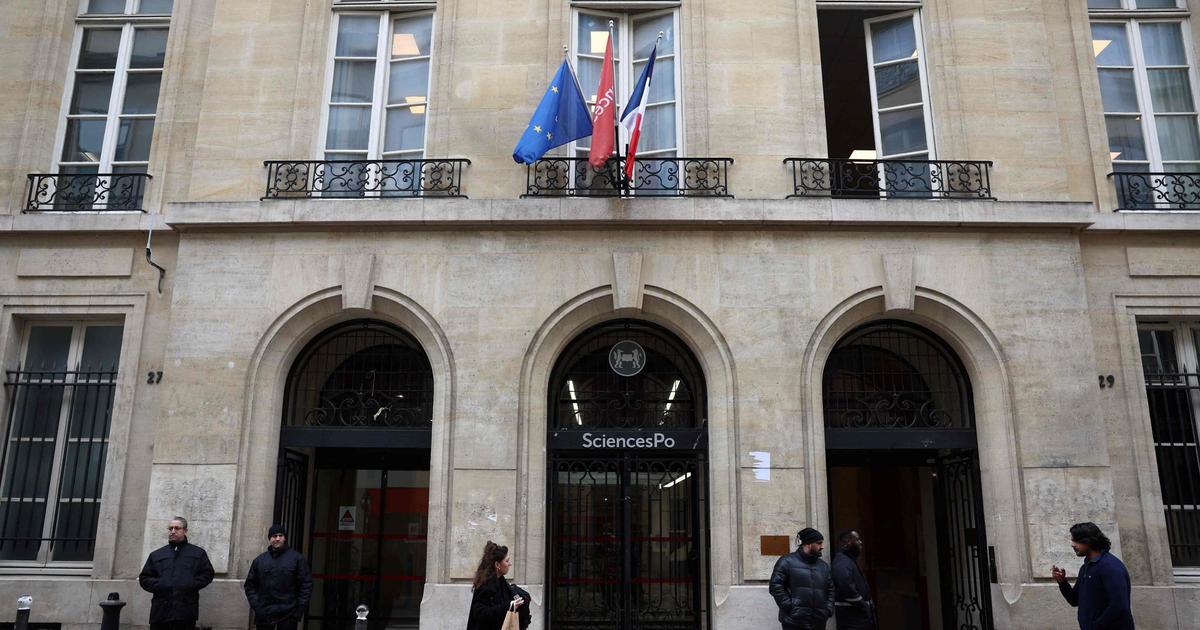Marie Le Bars, general practitioner in Lyon, remembers very well this patient, victim of conjugal violence for years. “Each time, she refused to take the medical certificate of assault and battery which enables her to file a complaint. But one day, she arrived, asked me for the seven papers without hesitation, and went to see the police. Since then, her partner has been sleeping in prison.
Women struck by their husbands, boyfriends and ex-partners, Marie Le Bars sees two to three times a day in the waiting room of her office. No typical profile, "domestic violence affects all social classes, all ages," said the doctor. Witness the funeral list of feminicides of the year 2019: 149 victims, according to the group Feminicides by companions or ex. In 2018, 213,000 people, aged 18 to 75, reported experiencing physical and / or sexual violence within the couple, reports the National Observatory on Violence Against Women.
Should medical confidentiality be partially lifted, as proposed by LREM deputies Bérangère Couillard and Guillaume Gouffier-Cha? The bill, debated in the National Assembly until Wednesday evening, would allow doctors to report to justice the victims in immediate vital danger without necessarily obtaining their agreement.
Lack of training
"False good idea, we are not auxiliaries of the police", annoys Héloïse Galili, psychologist and marriage counselor at Family Planning in Paris. For her, this possibility would risk "breaking the trust between the patient and her doctor and infantilize the victim when she most needs to have confidence in herself". "This is not a flagship measure, it is an easy solution so as not to see the lack of resources," adds Marie Le Bars.
Lack of resources for supporting victims. This is what the caregivers we contacted point to. From the lack of awareness of domestic violence in many universities, to the insufficient number of places in emergency accommodation, all consider that battered women are not sufficiently protected.
"Each caregiver should have training in violence against women, so that we realize that this is medical data since it is a major factor in the deterioration of health," notes Héloïse Galili.
"Is everything going well in your relationship?"
Cindy Richard, 29, a replacement in a general practitioner's office in Yvelines, felt helpless each time she was confronted with the situation. "At 28, when you receive a 50-year-old woman who gets beaten up, you don't necessarily know how to react ..." she laments. Pauline Morel, 30, general practitioner in Clichy (Hauts-de-Seine) was able to follow a module on the subject in the faculty where she studied. “We had learned to screen victims of domestic violence, that's good. But after: what do we do? "
“We are very aware of burn-out, sexually transmitted diseases, alcohol, tobacco. We ask patients questions about these subjects, without embarrassment, but we don't have the reflex to ask: Is everything going well in your relationship? notes Cindy Richard. There is still a certain modesty, for lack of training. "We don't automatically think of asking this question, or even, we don't allow ourselves to think about it," agrees Audrey, a general practitioner in the suburbs of Orléans (Loiret).
Newsletter - The essentials of the news
Every morning, the news seen by Le ParisienI'm registering
Your email address is collected by Le Parisien to allow you to receive our news and commercial offers. Find out more
Because she also works in Family Planning, Audrey was more aware of the problem of domestic violence. The young doctor gives each new patient a questionnaire to fill out. Inside is the question: "Have you ever been a victim of violence". "If the person checks the box no , I don't come back to it." If it ticks the yes box, I come back to it at the next appointment. If it does not tick anything, I also come back to it at the next appointment. "
Behaviors that give the alert
How to better identify victims of domestic violence? "There are surely more than what we believe, we still detect them badly", recognizes Audrey. In most cases, the victim arrives with a symptom that has nothing to do with the violence.
"I recently received a woman who, at the start of the consultation, talks to me about very general things," says psychologist Héloïse Galili. She tells me that she is not doing well, that she does not trust herself. I realize that she has post-traumatic syndrome and that she has eating disorders. And then, during the discussion, I learn that she was raped by her ex-spouse. "
PODCAST. Laura, survivor of a femicide attempt
"Several elements can give the alert," says Marie Le Bars, who quotes: "Being on the defensive, sadness, number of consultations, avoidance - when I want to listen to the lungs and the patient does not want to lift his t-shirt. Almost systematically, I ask them: How is it going at home? In your relationship? Are you afraid of someone at your home? "
In general, the patient minimizes. First on the psychological level. "She says: he's not nice , we argue , sometimes he yells at me . There, you must not stop: Ah well, he yells at you? You are afraid ? If the person is afraid, it is because of violence. Sometimes the patient answers in the negative. Then, she resumes meeting and evokes the subject herself. “It's a huge step. There is one more: leaving the abusive spouse. "
Advance at the victim's pace
In this stage, support is essential. “They do not imagine having the strength to leave, they do it gradually, make several breaks with their spouse. It is during this period, when they are less and less in control, that the violence is major ”, continues Marie Le Bars.
So you have to take your time, move at the victim's pace. Pay attention to the treatments given - "no anxiolytics, because the patient must remain vigilant" -, indicate the number of the listening platform for domestic violence (3919), give contacts to associations, lawyers … You still have to know them.
"Getting out of domestic violence is a multidisciplinary process that requires psychological, medical, legal assistance ... To work in a network, with associations, lawyers", lists Héloïse Galili. However, today, the mesh is far from perfect.
"We always canvass pharmaceutical companies to advertise drugs, but nobody comes to sensitize us to support patients victims of domestic violence," regrets Cindy Richard. “It's up to us to find the right contacts. "
"Not sufficiently secure"
"Often, the victims are blocked by their economic situation and, for the most part, there are the children in the middle ..." notes Pauline Morel. "What is offered to them is not sufficiently reassuring", regrets Marie Le Bars, who point out the lack of places in emergency accommodation: "If there is room only for her and not for their as a child, they will not leave the home. "
"A call for tenders will be launched to create two centers per region that will welcome the perpetrators of violence and allow them to be treated," says Bérangère Couillard. The deputy also cites the means implemented to improve support for victims: 130 hours of training a year for the police and gendarmes, "so that complaints are taken correctly", the training of all magistrates of here five years and the generalization of women's houses. “But we cannot do everything alone, it is the whole of society that must be made aware. "









